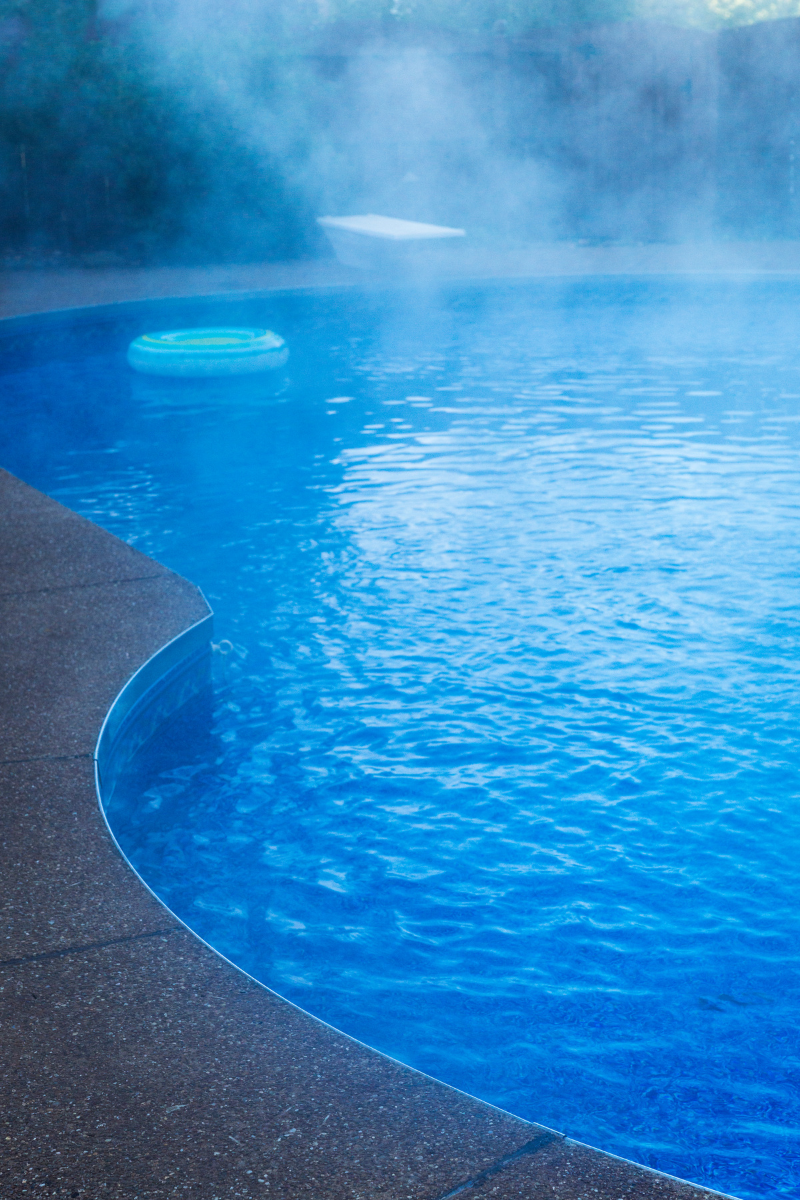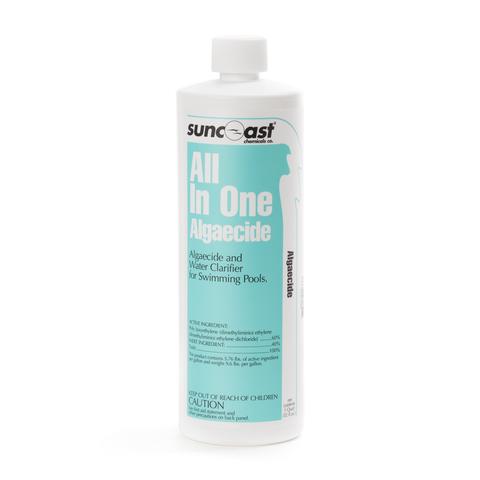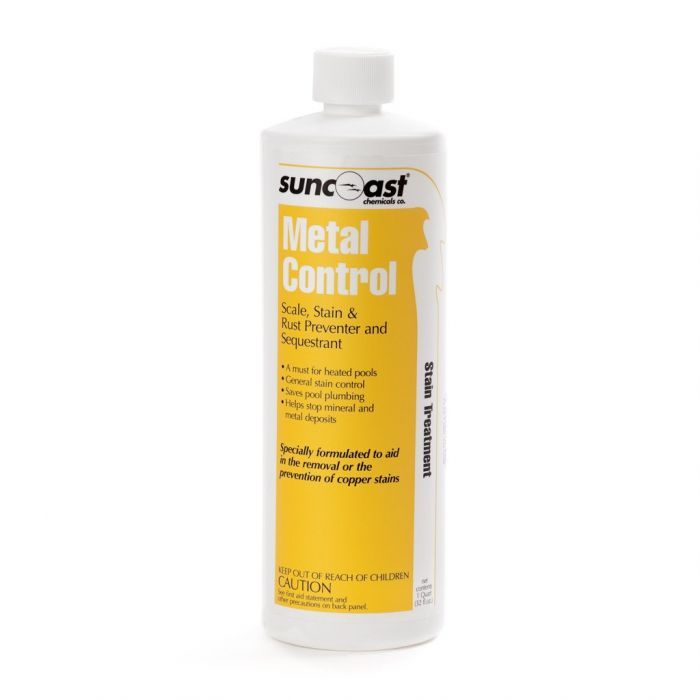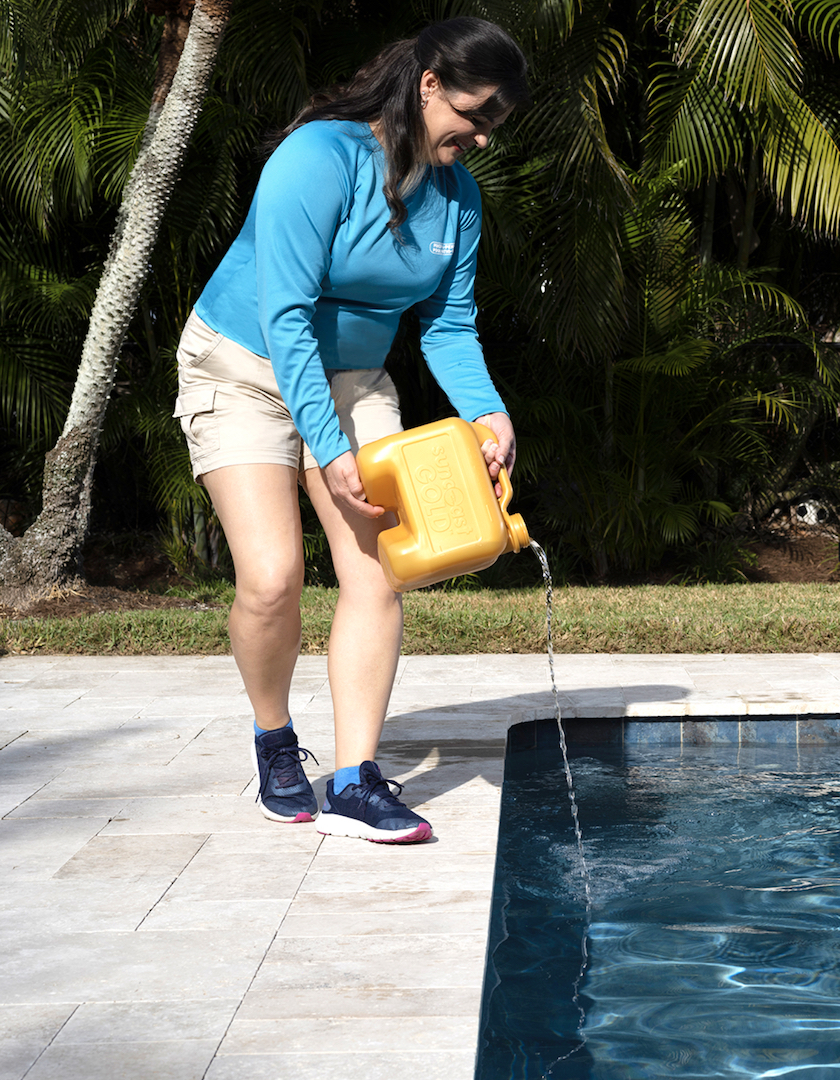It’s summertime, the forecast calls for hot days and clear skies. The kids are out of school; It’s the perfect time to go for a swim! It’s also the perfect time for extra love when it comes to pool care. If you want to enjoy the perfect day in your Pinch A Penny perfect pool, we’ve got some tips to help you stay on top of hot temperatures and maintain clear water all season long.

Pool Chemical Use & Consumption During Summer
Have you ever noticed how much easier it is to keep your pool water clear in the winter? That’s because the warmer the water, the more demand on your chemicals, especially chlorine. Chlorine is vulnerable to the sun’s UV rays and can break down if your stabilizer, or conditioner, is low. Warm water can also make your chlorine less effective due to microorganisms, like algae and bacteria, that thrive in warm water environments. These nuisances love the heat, and summer storms can bring them additional food for survival. Luckily, Suncoast All In One Algaecide is the perfect defense against blooms. Running your pump daily from sunrise to sunset keeps the water in circulation and reduces the potential for algae growth. The additional run time allows the water to be filtered more frequently and effectively so your pool stays clear and sanitary all summer long.
To keep your pool in top shape all summer, chlorine should be kept at 2-4 ppm, and the pool needs to be shocked on a weekly basis. During especially hot months, when the pool water temperature is above 85°, additional sanitizers and shock may be necessary. Consider adding an additional tablet to your chlorinator or increasing the output on your Salt Chlorine Generator. You may also need to shock your pool more frequently if algae is present.
Pool Water Evaporation
In times of hot weather and low rainfall, you may see excessive evaporation in your pool. When your pool water evaporates, it also takes some of the chemicals in your pool with it. Chlorine levels can get too high during times of evaporation, so make sure to test your water often to keep the chemicals balanced. You can also use Suncoast Metal Control to keep metals at bay when you add water to the pool.
Scaling and Pool Equipment Due to High Temperatures
At higher temperatures, there is an increased tendency for scaling conditions. Scale is the accumulation of minerals, usually calcium, on your pool’s surface. These scale build-ups are similar to high pH, alkalinity, and calcium levels and can cause damage to your pool’s plumbing and equipment, including pumps and automatic pool cleaners.
Enjoying Your Pool During the High-Temperature Months
If your pool water is getting too warm, it may not be enjoyable or even comfortable to swim. Consider investing in a pool chiller to lower the water temperature in your pool. Cooler pool water not only means less chemical consumption, but it gives you a more refreshing dip when the temperatures go up! With the coolest pool in town, you may find yourself getting free snacks and sandwiches from friends and neighbors who can’t wait to come and swim! Taking time to show your pool some extra love during the warmer months is a small price to pay for the enjoyment you’ll receive as you splash your summer away. With a little extra attention and time, you can keep your pool in top shape all year long. And if you ever have any questions on how to properly maintain your pool, you can always turn to a professional at your local Pinch A Penny for help.
Recommended Products
Shop your local Pinch A Penny or Buy Online Pick Up In Store.
Suncoast All In One Algaecide

Suncoast Metal Control

Share This Post

